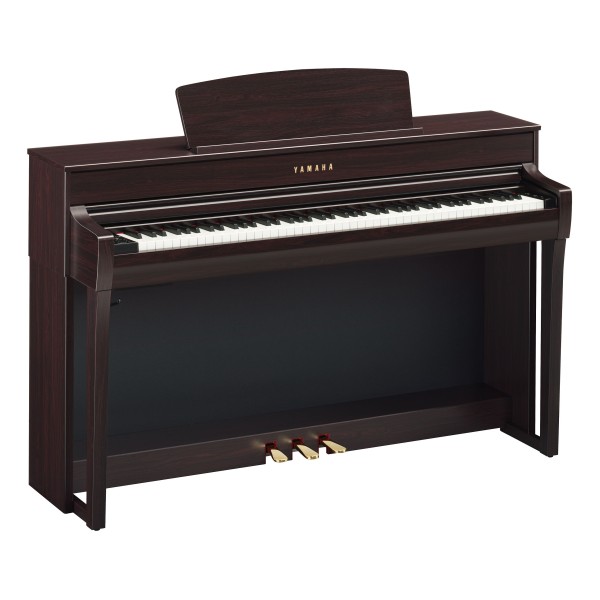- Out-of-Stock



Get €150 cashback from Yamaha, directly into your bank account, when you register this CLP745 Purchase.
See in-store for details.
The CLP745 comes with a 5-year warranty.
The CLP-745 from Yamaha offers powerful 2-way speakers, Bluetooth Audio Functionality and a superb GrandTouch-S Keyboard with wooden keys giving unprecedented performance capability to pianists of all abilities.
GrandTouch-S keyboard of the CLP-745 features wooden keys. Just as with grand piano keyboards, the solid wood is cut from the very best parts of well-dried lumber, making the keys more resistant to warping than keyboards made of laminated wood.
The interaction and interplay of the hammers, dampers, and strings inside a grand piano respond to the subtlest nuances of the pianist’s touch, creating a limitless range of tonal expression. Touch refers to the pianist’s control, not only of intensity (softness/loudness) in playing and releasing the keys, but also of the speed and depth with which the keys are pressed.
Clavinova grand piano sounds are recorded from several world-renowned concert grand pianos. One of them is the CFX, Yamaha’s top-flight concert grand piano. Pianists around the world are enamored with the impressive, dazzling, richly expressive sound of the CFX in concert halls.
Yamaha and the piano tutorial app flowkey are working in collaboration for a limited time offer - enjoy three months of premium learning when you purchase select Yamaha keyboards and digital pianos. flowkey is an interactive learning aid, suited to beginners and advanced players alike thanks to its wide range of step-by-step courses and enormous library of learnable songs.
All you need to do is register your instrument purchase with Yamaha, and they'll provide you with your flowkey Premium voucher code. flowkey is available on both Apple and Android devices.
Dimensions
Width 1,461 mm
Height 927 mm
Depth 459 mm
Weight 60 kg
Keyboard Number of Keys 88
Type GrandTouch-S™ keyboard
Number of Pedals 3: Damper (with half-pedal function), Sostenuto, Soft
Tone Generation Piano Sound Yamaha CFX, Bösendorfer Imperial
Polyphony Number of Polyphony (Max.) 256
Preset Number of Voices 38
Recording Number of Songs 250
Number of Tracks 16
USB Audio Recorder Playback .wav (44.1 kHz sample rate, 16-bit resolution, stereo)
Recording .wav (44.1 kHz sample rate, 16-bit resolution, stereo)
Transpose -12 – 0 – +12
Tuning 414.8 – 440.0 – 466.8 Hz (approx. 0.2 Hz increments)
Amplifiers (50 W + 50 W) x 2
Speakers (16 cm + 8 cm) x 2
Power Consumption 40 W (When using PA-500 AC adaptor)
Power Supply Adaptor PA-500